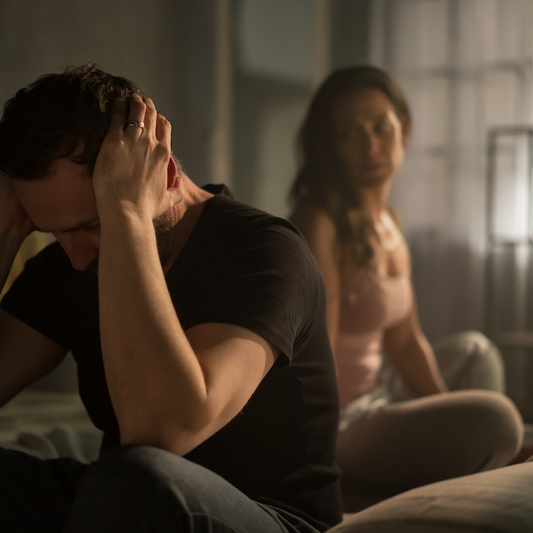
Human Papillomavirus (HPV): Treatment, Symptoms, and Causes
If you have been diagnosed with HPV and are looking for information and advice you may feel a little overwhelmed by what you read online. Human papillomavirus is the second most common sexually transmitted infection in the UK (after chlamydia) and there are over 200 different types of the virus. In this article we will share as much information as possible to help you to understand the HPV.
What causes HPV in females?
HPV is generally spread through sexual contact, making it a highly contagious sexually transmitted infection (STI). It's caused by a virus called the human papillomavirus (HPV) and is passed through skin-to-skin contact with someone who has the virus, usually during sex. HPV infection occurs when the virus enters your body, usually through a cut, abrasion or small tear in your skin.
Is HPV an STD?
Yes, HPV is a sexually transmitted disease (STD - also referred to as a sexually transmitted infection or STI) but it does not require penetrative intercourse to be spread. It can be spread through any type of sexual contact, including oral, anal, and vaginal sex. Sometimes, it can be spread through non-sexual contact such as sharing towels, razors, or other items that come into contact with the virus.
What are the symptoms of HPV in females?
Female symptoms of human papillomavirus (HPV) vary depending on the type of virus and can range from no symptoms at all to warts, changes in the cervix, or in rare cases, cancer. Common symptoms of HPV infection in women are genital warts, which can appear on the vulva, vagina, cervix, or anus. These warts may be small, flat, or raised, and may be single or multiple.
Other symptoms can include changes in the skin of the vulva, such as thickening, redness, itching, or burning. HPV infection can also cause abnormal cell changes in the cervix, which can be detected through a Pap smear test or cervical screening. In many cases, HPV infection doesn't cause any symptoms at all.
Can you get rid of HPV?
Unfortunately, there is no known cure for HPV. However, there are treatments available that can help to reduce the symptoms and prevent it from spreading. You should practice safe sex and get regular cervical screenings to detect HPV early and treat it in time. Most HPV infections are cleared out by the immune system within 2 years, causing no health complications at all.
HPV vaccines protect against human papillomavirus by targeting HPV types that are most commonly associated with cancer. They target HPV types 16 and 18, which are known to cause 80% of cervical cancer cases, as well as HPV types 6 and 11, which cause 90% of genital warts cases.
What happens to your body when you have HPV?
A genital HPV infection can cause genital warts. These aren't dangerous but they can be uncomfortable. The treatment for genital warts depends on their size, location and the number of warts present. Some people will need to have the warts removed by a doctor, while others may need to take antiviral medications or go through alternative treatments. If you have genital warts, you should consult your doctor for a diagnosis and to discuss the best treatment for you.
In some cases HPV can cause cancer. Generally, women and people assigned female at birth (AFAB) are at greater risk of HPV-related cancers as high-risk HPV can progress to cervical cancer if it's not treated. Men and people assigned male at birth (AMAB) are at lower risk of HPV-related cancers, but HPV can still lead to cancers of the penis, anus, head and neck. One of the biggest - but lesser-known - dangers of HPV involves the risk of head and neck cancer, with HPV spreading to the throat via oral sex, although this is rare.
Fortunately, the HPV vaccination roll-out has been highly effective at preventing HPV-related cancers. In the UK, the HPV vaccine is offered to all boys and girls aged 12 to 13 years (born after 1 September 2006) as part of the universal HPV vaccination programme. The 2nd dose is offered 6 to 24 months after the 1st dose. If you're eligible and miss the HPV vaccine offered in Year 8 at school, it's available for free on the NHS until your 25th birthday.
What are the warning signs of HPV?
HPV can be difficult to detect because it often doesn't have any symptoms. However, some common signs and symptoms associated with HPV include a patch of lighter or darker skin, a discoloured lump or bump, thickening of the skin, itching, pain, bleeding, an open sore that does not heal, and warts in the genital area.
If you're experiencing any of these symptoms, don't panic, it doesn't mean you have cancer, but it's really important to attend a regular cervical cancer screening. This likely means once a year (your doctor will advise on this). This routine screening will check for any cervical cell changes (abnormal cells) that may need to be treated. If abnormal cells are left untreated over time they can cause cervical cancer.
How does HPV start out?
The virus is spread through contact with infected skin lesions, such as warts, or other viral particles found on the skin or mucous membranes. In most cases, HPV is transmitted through direct contact with an infected person's skin, including the genitals, anus, or mouth.
Once transmitted, HPV can enter and infect the skin cells and mucous membranes. Depending on the type of HPV, the infection can result in the growth of warts, tumours, or precancerous changes in the cells. In some cases, HPV can cause cancer in the cervix, vulva, anus, throat, or penis.
How long does HPV last?
In most cases, HPV goes away on its own within two years without health problems. According to the Centers for Disease Control and Prevention (CDC), 90% of HPV infections will resolve spontaneously within 2 years in both males and females. If you have more questions about HPV there are some great resources online such as Jo's Trust and if you are worried about any of your symptoms you should speak to your doctor.

























